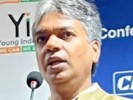With less than 10 days left for the first phase of polling for the upcoming Lok Sabha elections, India's key rival parties, the Bharatiya Janata Party (BJP) and the Congress, have sharpened their focus on economic issues. Price rise, unemployment, poverty and agricultural distress are among the most pressing problems to feature across surveys.
Both the Congress and the BJP have begun a war of words over which regime performed better economically, the United Progressive Alliance (UPA) government under Manmohan Singh or the National Democratic Alliance (NDA) dispensation led by Narendra Modi. The Congress's manifesto promises to propel the Indian economy to greater heights through jobs-led growth and by turning the country into a manufacturing powerhouse. On the other hand, though the BJP is yet to release its manifesto, PM Modi has promised to make India the third-largest economy in his third term, and a developed one by 2047.
A lot has been written about the Manmohan Singh and Modi regimes. This piece will focus on how economic performance, mainly GDP growth (average numbers used everywhere) and inflation, correlates to Lok Sabha election results. We analyse data from the 1971-77 election cycle onwards as before that, the Congress was in power uninterruptedly.
The above data shows that a government is likely to be voted out whenever GDP growth under it is lower compared to its predecessor's. This happened six times, in 1977, 1980, 1991, 1996, 2004 and 2014. In contrast, governments that managed to improve the country's growth rate went on to win four times, in 1984, 1999, 2009 and 2019, though they also lost twice in 1989 and 1998.
Notably, inflation and electoral outcomes do not indicate any clear correlation. Governments that have recorded lower inflation have lost four out of six times in 1977, 1989, 1996 and 2014, despite a better performance on the front. On the other hand, governments with higher inflation have also been punished in four out of six elections, in 1980, 1991, 1998 and 2004.
The Narendra Modi government's first term was marked by low inflation. During this period, the general consumer price index (CPI) rose by an average of 4.3% per year. However, its second term has seen CPI inflation average 5.77%.
Worldwide, given the ravages of the Covid-19 pandemic and the possibility that people have been more forgiving, the last couple of years have witnessed governments delivering lower growth returning to power in a few countries. This was seen in Turkey and Canada, though in the US, Donald Trump lost the Presidential Polls in 2020.
It remains to be seen how inflation and economic growth affect the Modi government's prospects in the upcoming elections in India.
PromotedListen to the latest songs, only on JioSaavn.com
(Amitabh Tiwari is a political strategist and commentator. In his earlier avatar, he was a corporate and investment banker)
Disclaimer: These are the personal opinions of the author.





















 Toi Staff
Toi Staff Gideon Levy
Gideon Levy Belen Fernandez
Belen Fernandez Rami G Khouri
Rami G Khouri Donald Low
Donald Low Mort Laitner
Mort Laitner Ali Fathollah-Nejad
Ali Fathollah-Nejad Nikkei Editorial
Nikkei Editorial Michael Kwet
Michael Kwet
